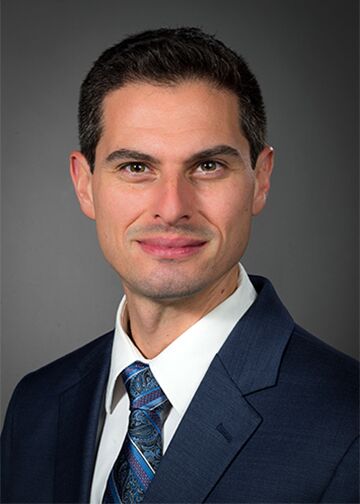Newswise — Investing in AI for clinical care and embracing digital transformation can significantly enhance patient outcomes, streamline care coordination, and boost clinical trial enrollment.
Daniel King, MD PhD, Assistant Professor in the Institute of Cancer Research at the Feinstein Institutes for Medical Research.
As AI rapidly changes how we manage and deliver health care, many are asking what disciplines and types of technology would yield immediate results? Daniel King, MD PhD, a gastrointestinal medical oncologist at Northwell Health's Cancer Institute's Center for Genomic Medicine Assistant Professor in the Institute of Cancer Research at the Feinstein Institutes for Medical Research, will speak to a AI-powered pancreatic cancer detection tool he created called iNav to improve the diagnosis and ultimately the coordinated care of patients. iNav analyzes high volumes of CT and MRI inpatient and outpatient scans — more than 10,000 abdominal scans per week — to find indications of cancerous mass/lesions on a patient's pancreas. Since its inception, iNav has led to a 50% reduction in time-to-treatment at Northwell Health and a tripling enrollment in clinical research studies. More than 100 patients have been identified as being at risk of pancreatic cancer, and more than 30 patients have needed to be navigated to care. Dr. King will discuss the idea behind iNav, the problems he and his team faced in developing it, and lessons learned for other health systems to roll out effective AI tools.
King says:
“Instead of waiting for patients to get a biopsy, get referred to us, and then come to clinic, iNav allows us to jump-start that process and help patients sometimes even before they have a cancer diagnosis”
MEDIA CONTACT
Register for reporter access to contact detailsRELATED EXPERTS
Daniel King
Assistant Professor, Institute of Cancer Research, Feinstein Institutes for Medical Research
Northwell Health
